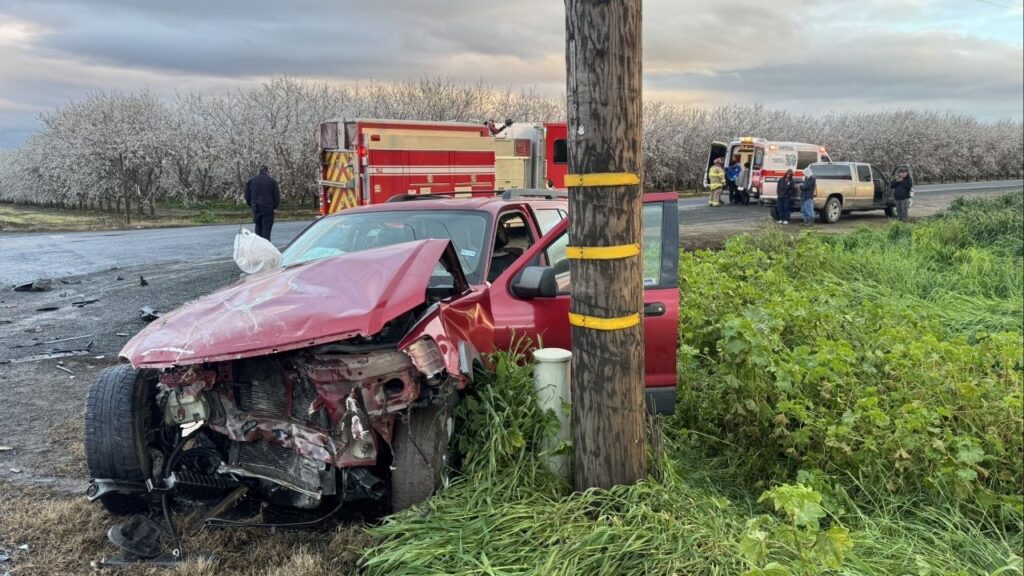Assembly Bill 1156 allows landowners to temporarily shift land out of ag production and into clean energy projects like solar panels, without permanently losing the ability to return to farming if water conditions improve. (Shutterstock)

- AB 1156 modernizes outdated land-use rules to reflect challenges farmers face today, writes Kerman grower Paul Betancourt.
- By allowing solar energy production during limited water availability, AB 1156 helps diversify farm income without closing the door on ag.
- Without this option, whole communities could wither alongside the land.
Share
|
Getting your Trinity Audio player ready...
|
My family is proud of our farm in Kerman. At VF&B Farms, we’ve grown just about everything over the years — cotton, tomatoes, almonds, sugar beets, cantaloupes, barley, and wheat. If it grows in the Valley, we’ve probably had a go at it.

Paul Betancourt
Opinion
Farming here has never been easy, but it’s always been worth it. We take pride in feeding our neighbors and contributing to California’s economy. But like so many of my fellow farmers, I’m worried about the future. Not because we can’t keep farming, but because we may no longer have the water to do it.
Water scarcity is no longer a distant threat. It is here. The Sustainable Groundwater Management Act is forcing many of us to drastically reduce groundwater use. And while we support responsible water management, the reality is sobering: Large portions of our farmland could become unusable in the near future.
That’s why I support legislation currently pending in Sacramento: Assembly Bill 1156, a smart, flexible amendment to the law that gives family farms like mine another option. It allows landowners to temporarily shift land out of agricultural production and into clean energy projects like solar panels, without permanently losing the ability to return to farming if water conditions improve.
For my family’s and so many other farmers’ businesses, it’s not just about policy, it’s about survival.
This Bill Reflects Today’s Realities
AB 1156 from Assemblymember Buffy Wicks (D-Oakland) modernizes outdated land-use rules to reflect the challenges farmers are facing today. For example, under the Williamson Act, which was designed to protect farmland, it’s nearly impossible to use the land for anything else, even if we don’t have enough water to grow crops. Other opportunities to facilitate clean energy infrastructure on farmland, called a solar-use easement, exist on paper but are so restricted and uncertain it’s hardly used. It’s time for a real update.
This bill does that. It gives growers a tool to keep the land productive even when the water runs dry. And it gives us something that’s also been in short supply lately: stability. By allowing solar energy production during periods of limited water availability, AB 1156 helps diversify our income without closing the door on agriculture. That kind of flexibility is exactly what our operations need to weather the uncertainty of the years to come.
And it isn’t just about farms. It’s about families, jobs, and the rural economy of the Central Valley. Without this option, whole communities could wither alongside the land. But if we can pivot some of that land to clean energy, we can generate good local jobs, tax revenue, and long-term income for areas hit hardest by SGMA. Projections show that clean energy development on fallowed farmland would create an average of 22,000 annual construction jobs and $34 billion in labor income and 4,000 long-term jobs over 20 years. The bill also will generate more than $7 billion in tax revenue into Central Valley communities over the next two decades.
Survival of Valley Farming Requires New Policies
We’re not giving up on farming. My fellow farmers here in Fresno County and throughout the Central Valley have been doing this for a long time, and we want to keep doing it for generations to come. To make that happen, we need new tools and smart policy that recognizes the pressures we’re under.
AB 1156, which passed the State Assembly this week by a overwhelming 58-5 margin and now will be considered in the Senate, is one of those tools. It’s good for the environment by creating more clean, renewable energy. It’s good for our communities by keeping the land productive. And it’s good for our farmers by allowing us to continue doing what we do best — growing food for a hungry world.
I urge our legislators and Gov. Newsom to support this bill to give Central Valley farmers the flexibility we need to keep going.
About the Author
Paul Betancourt is partner of VF&B Farms, his family’s farm in Kerman, and past president of the Fresno County Farm Bureau.
RELATED TOPICS:
Categories

Ukraine and Russia Hold Peace Talks, but Expectations Are Low

How Jesse Jackson Inspired Generations of Black Democrats

Xbox Live Down for Thousands of Users, Downdetector Reports

Warner Bros. Discovery Restarts Deal Talks with Paramount















